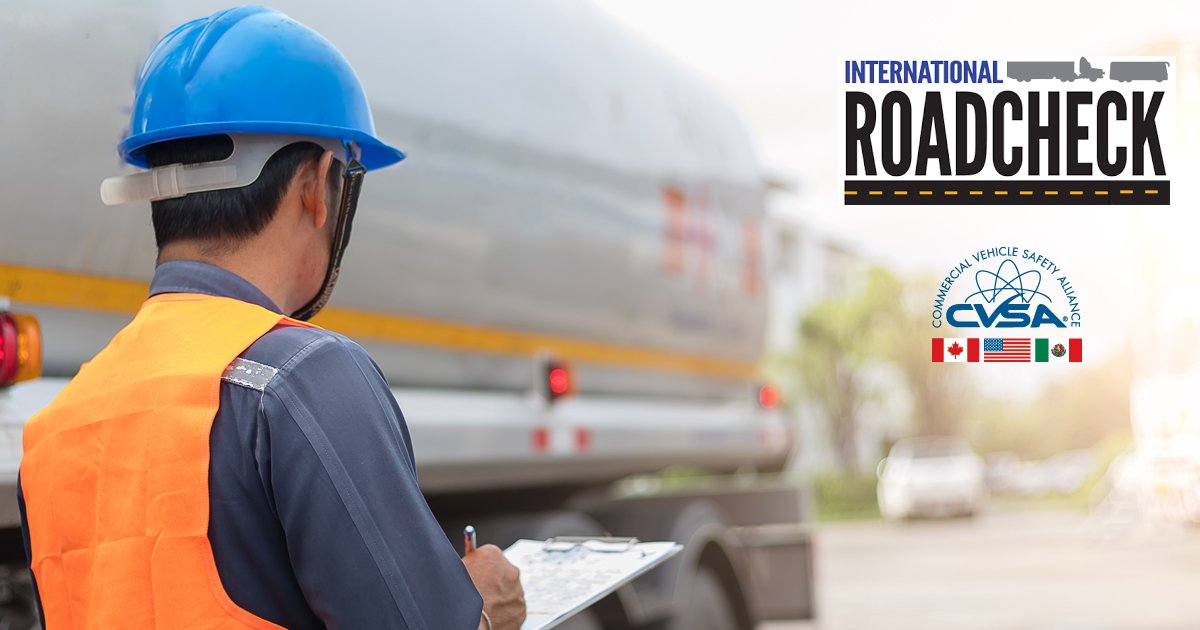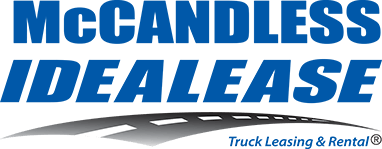Is Your MCS 150 Up to Date?
Read the this week's Idealease Safety Bulletin! Read the full bulletin and subscribe to receive all future Idealease Safety Bulletins.
In this issue:
- FMCSA Alerts Public of Heightened Phishing Risk: Fraudulent Safety Audit Requests
- Frost Laws: Applicable in 16 States and 9 Provinces!
- Daylight Savings Time Begins Sunday, March 10th!
- CVSA’s International Roadcheck is Scheduled for May 14-16
- February Marks Heart Protection Month
- Registration Now Open for the 2024 Idealease/NPTC Safety Seminars!
The FMCSA mandates that all interstate carriers file an MCS-150 or MCS-150B (if a Safety permit is required) every 24 months, based on the last two digits of the US DOT number. The month is determined by the last digit, while the year is determined by the second to last digit. If the second to last digit is even, reporting occurs in even-numbered years; if odd, in odd-numbered years. Should there be any operational changes like an increase in units or a change of address, filing can occur at any time and is encouraged. Filing can be done online, via fax, or mail. Alternatively, a motor carrier that provides similar information to a State as part of its annual vehicle registration requirement under the Performance and Registration Information System (PRISM) complies by filing this information with the relevant State commercial motor vehicle (CMV) registration office. Forms MCS-150 and MCS-150B, along with detailed instructions, can be obtained from the FMCSA website, all FMCSA Service Centers and Division offices nationwide, or by calling 1-800-832-5660. Updates can be made online at www.fmcsa.dot.gov or by faxing the form to the FMCSA at 703-280-4003.
To determine when your MCS-150 was last updated, one simple method is to visit the FMCSA Safer website: https://safer.fmcsa.dot.gov/CompanySnapshot.aspx. Enter your DOT number and view your company snapshot. Your "FMCSA Form Date" will be displayed on the left side of the report. If it is older than two years, it's crucial to update your MCS-150 as soon as possible. You can initiate the update directly from this snapshot by hovering your cursor over "FMCSA Form Date" and clicking on the link.
For more details, visit: https://www.fmcsa.dot.gov/registration/updating-your-registration#biennial-updates
FMCSA Alerts Public of Heightened Phishing Risk: Fraudulent Safety Audit Requests
There is a current issue of fraudulent emails circulating among registered entities, purportedly from FMCSA, urging recipients to schedule a safety audit. These emails contain a link that appears to lead to a SAFER URL and mimics FMCSA’s MC-150 form. However, it prompts users to input sensitive information such as a PIN#, EIN#, and Social Security Number. Not only does this include Personal Identifiable Information (PII), but it also poses a risk of unauthorized access to the FMCSA account. The email itself is crafted to be highly convincing as originating from FMCSA.
Legitimate communications regarding safety audits typically originate from an FMCSA-designated mailbox or the responsible entity within the State delegated to conduct the safety audit. While these emails usually end with ".gov", it is strongly advised that stakeholders and customers exercise caution and verify any suspicious emails or communications with the appropriate agency. Alternatively, contacting the FMCSA Division Office directly can provide clarification. The Federal Trade Commission (FTC) outlines recommended procedures for email verification.

Frost Laws: Applicable in 16 States and 9 Provinces!
Spring weather brings its own set of driving challenges, particularly due to the fluctuating ground temperatures. These temperature changes can cause damage to both roads and vehicles, resulting in what's often referred to as "wavy roads" and creating roller coaster-like rides.
As a consequence, motor carriers must remain vigilant and stay informed about the various spring weight restrictions imposed by numerous states and provinces. Failing to do so could lead to damage to the road, the rig, or both.
It's crucial to be prepared with alternative routes. Many states implement seasonal weight restrictions starting as early as late February and extending into May to safeguard the integrity of roadways. Drivers traveling through regions undergoing spring thaws should keep an eye out for posted signs indicating permissible weights, as well as any reduced speed limits.
Effective trip planning may involve checking state websites to ascertain if a particular highway is accessible to your vehicles. Moreover, if a driver encounters a weight restriction, they should be prepared to seek an alternative route, possibly reaching out to dispatch for assistance.
Ignoring these posted restrictions could have serious consequences beyond mere fines. It may lead to damage to roads, vehicles, and cargo, and even result in accidents if the roadway becomes challenging to navigate.
To access information on frost laws in various states and provinces, visit: https://oversize.io/regulations/frost-laws-by-state
CVSA’s International Roadcheck is Scheduled for May 14-16
The Commercial Vehicle Safety Alliance (CVSA) has announced that the International Roadcheck will take place from May 14 to May 16. This event is a prominent initiative focused on commercial motor vehicle inspection and regulatory compliance enforcement across Canada, Mexico, and the United States.

During the International Roadcheck, law enforcement personnel certified by CVSA will conduct inspections of commercial motor vehicles and drivers at weigh/inspection stations, temporary sites, and through mobile patrols to ensure adherence to federal, state, provincial, or territorial regulations. The data collected over the 72-hour period of the International Roadcheck will be compiled, analyzed, and the results will be made available during the summer.
Each year, International Roadcheck highlights specific categories of violations. In 2024, the focus areas will be tractor protection systems and alcohol and controlled substance possession.
The issue of controlled substance and alcohol possession/use remains a significant concern for motor carriers, drivers, and the public at large. The increasing number of prohibited drivers listed in the U.S. Drug and Alcohol Clearinghouse (DACH) underscores the severity of this issue and poses a threat to all motorists traveling on North American roadways.
Throughout the three days of International Roadcheck, inspectors will conduct their routine North American Standard Level I Inspection, a comprehensive 37-step inspection procedure that covers vehicle components and driver documentation and requirements.
For more information on Roadcheck 2024, visit: https://www.cvsa.org/news/2024-international-roadcheck/

February Marks Heart Protection Month
Unlocking the #1 Key to Lowering Blood Pressure: Movement!
Movement is the cornerstone of maintaining a healthy heart. Every aspect of the human body is designed for motion, including the heart, which relies on bodily movement to efficiently circulate blood throughout the system. Simply put, when you engage in physical activity, you're aiding your heart in its vital function.
However, as a driver, your job often involves prolonged periods of sitting without much movement. This sedentary lifestyle places excessive strain on your heart, forcing it to work harder to pump blood throughout your body, a task it wasn't naturally designed for.
So, what's the ultimate secret to reducing blood pressure and steering clear of hypertension? Movement!
Any form of movement, at any time, holds the key to improving blood flow and lowering blood pressure.
- Stay mindful of the hours spent sitting while driving. Incorporate small movements into your routine, such as flexing your feet, stretching your legs, rotating your wrists, or shrugging your shoulders. The key is to move frequently.
- Seek opportunities to stay active outside of your truck. Short bursts of activity, lasting ten minutes, repeated four or five times a day, can significantly contribute to lowering blood pressure and ensuring your DOT medical card remains valid.
- Use downtime during loading or unloading to stretch, walk, or engage in light exercises.
- Opt for parking spots farther away at rest stops and walk the extra distance to the facilities.
- Consider dining at nearby restaurants or purchasing healthy food from local grocery stores instead of relying solely on truck stop meals.
- Challenge yourself to step in and out of your truck or walk around it ten times after stopping for a meal. Every additional step counts!
- Take advantage of breaks by walking around the parking lot, exploring different rows, or admiring custom trucks.
Regular physical activity is paramount for heart health. Even simple exercises like walking or biking for just 15 minutes a day can make a significant difference in maintaining a healthy heart, controlling weight, and managing stress levels.

Registration Now Open for the 2024 Idealease/NPTC Safety Seminars!
Driving Safety in 2024
Idealease and the National Private Truck Council (NPTC) are excited to announce the opening of registration for the 2024 Safety Seminars. These one-day seminars will focus on crucial topics such as safety data analysis, basic safety and compliance, regulation changes, and CSA.
Who Can Attend: These seminars are open to all Idealease customers, potential customers, and NPTC members, and are provided at no charge.
Seminar Highlights:
- Gain insights into safety practices and compliance regulations.
- Learn about the latest advancements in safety technology.
- Understand CSA (Compliance, Safety, Accountability) and its impact on your operations.
Why Attend: Whether you're a novice or experienced transportation professional, these seminars offer valuable information to enhance your safety practices.
Registration Details: Seminars are currently available for registration, with venues secured for the following locations:
Spring 2024
- 4/10/24: Sun Prairie, WI
- 4/18/24: Frankfort, KY
- 5/9/24: Tampa, FL
- 5/21/24: Portland, OR
- 5/23/24: Santa Rosa, CA
Fall 2024
- 10/1/24: Eugene, OR
- 10/3/24: San Leandro, CA
Note: If you don't see a seminar in your area listed yet, don't worry. Registration availability will be updated weekly as venues are secured. Keep an eye on this bulletin for the latest updates.
To register for an upcoming seminar in 2024, click on the following link: Safety Seminar Registration. Don't miss out on this opportunity to enhance your safety knowledge and practices in 2024. Register today!

Daylight Savings Time Begins Sunday, March 10th!
Daylight saving time will begin for 2024 on Sunday, March 10, at 2 a.m. local time, when our clocks will go ahead one hour, part of the twice-annual time change that affects millions, but not all, Americans.
- Start now to make sure that all your drivers are aware of the change to daylight savings time in two weeks. Caution route drivers especially that the amount of daylight will change according to their stops with the change.
- Also, remember to change the batteries in smoke alarms and carbon monoxide detectors as well.
Most sleep experts recommend a minimum of 7 hours of sleep a night. Many people sleep an average of 40 minutes less Sunday night, March 10th after Daylight Saving Time returns. Plan to avoid being sleepy. Sleep in Sunday morning and nap Sunday afternoon.
Not all states observe Daylight Savings Time. Hawaii and Arizona (with the exception of the Navajo Nation) do not observe daylight saving time, and neither do the territories of American Samoa, Guam, the Northern Mariana Islands, Puerto Rico and the U.S. Virgin Islands.
*The Idealease Safety Bulletin is provided for Idealease locations and their customers and is not to be construed as a complete or exhaustive source of compliance or safety information. The Idealease Safety Bulletin is advisory in nature and does not warrant, guarantee, or otherwise certify compliance with laws, regulations, requirements, or guidelines of any local, state, or Federal agency and/or governing body, or industry standard.
